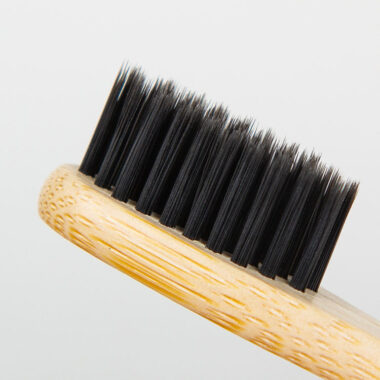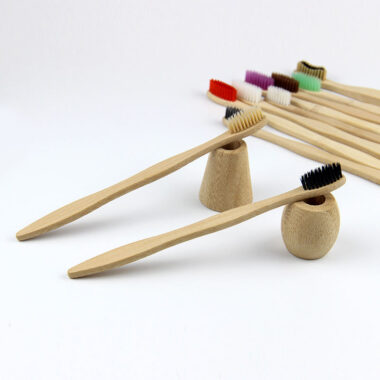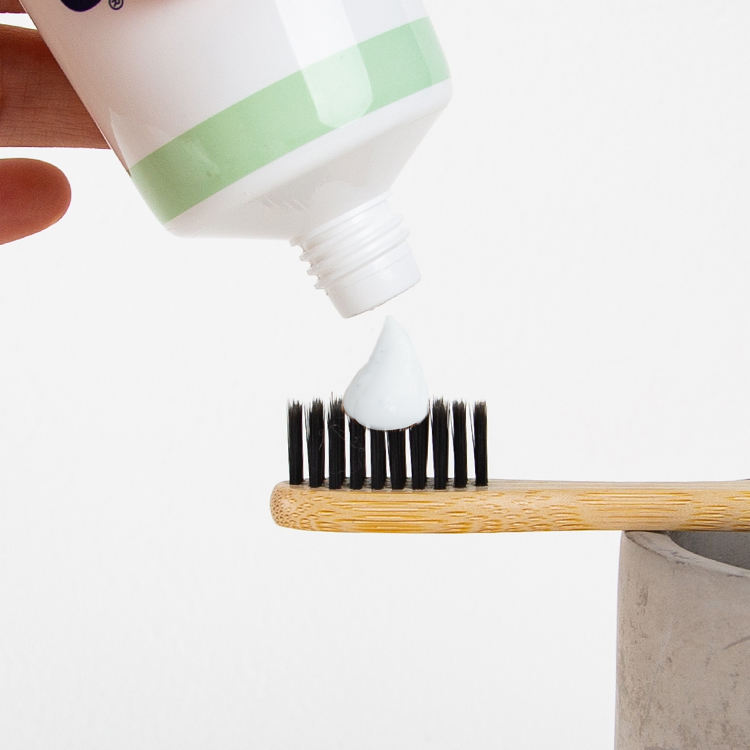Here’s everything you need to know about biodegradable toothbrushes:
What Are Biodegradable Toothbrushes?
- Toothbrushes made from materials that naturally break down and decompose in the environment without leaving harmful residues.
- Common biodegradable materials include bamboo, wood, corn starch-based bioplastics, and sometimes plant-based nylon bristles.
Components of a Biodegradable Toothbrush
- Handle:
Usually made of bamboo (the most popular), wood, or biodegradable bioplastics. Bamboo is preferred because it’s fast-growing, renewable, and compostable. - Bristles:
Most biodegradable toothbrushes still use nylon bristles, which are not biodegradable but sometimes partially biodegradable options exist, such as bristles made from castor oil derivatives or plant-based materials. - Packaging:
Often comes in recyclable, compostable, or plastic-free packaging (like cardboard or paper).
Benefits of Biodegradable Toothbrushes
- Reduced plastic waste: Unlike plastic toothbrushes, biodegradable ones won’t linger in landfills or oceans for hundreds of years.
- Lower carbon footprint: Bamboo and wood handle production typically uses less energy and emits fewer greenhouse gases.
- Renewable resources: Bamboo and wood are fast-growing and sustainable.
- Eco-friendly disposal: Handles can be composted or naturally decomposed at the end of their life cycle.
Limitations & Considerations
- Bristle disposal: Nylon bristles need to be removed before composting the handle, which can be inconvenient.
- Durability: Bamboo handles may be less durable or more prone to cracking if not cared for properly.
- Water exposure: Excess moisture can cause bamboo handles to warp or mold if stored improperly.
- Cost: Biodegradable toothbrushes tend to be slightly more expensive than conventional plastic ones.
- Biodegradable certifications: Not all products labeled biodegradable meet strict standards, so look for certifications or transparent material sourcing.
How to Dispose of Biodegradable Toothbrushes
- Remove bristles with pliers or cut them off.
- Compost the bamboo or wooden handle in your home compost bin or municipal compost facility.
- Recycle or dispose of bristles according to local waste guidelines (usually trash if no recycling is available).
Summary
Biodegradable toothbrushes, especially those with bamboo handles, offer a greener alternative to plastic toothbrushes by reducing environmental pollution and promoting sustainability. The biggest challenge remains the bristles, but innovation is advancing toward fully biodegradable options.
Would you like help finding top-rated biodegradable toothbrush brands or tips on proper disposal?
















